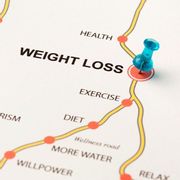Diet Plans: How to Manage your Sodium Intake?

Most Americans get far beyond the amount of Sodium that is a necessary part of a healthy diet. In fact, according to the American Heart Association, the average American consumes around 3400 milligrams of sodium daily, well beyond the 2300 milligram recommendation.
Why is it important to control your sodium intake?
For some people having too much sodium can make the kidneys retain extra water, increasing blood volume. This in turn puts more pressure on blood vessels, forcing the heart to work harder, leading to high blood pressure (hypertension) over time. Consuming less sodium in your diet can help lower hypertension.
Without going to extremes of tracking your milligrams of sodium per day, instead start with a more sensible approach with these tips:
- Know your blood pressure. This can be checked at your yearly physical with your doctor or at many pharmacy and store locations.
- Eat more at home. Restaurants serve foods with very high amounts of sodium. If you are eating out for most meals you will, most likely be well beyond the recommended amounts.
- Know your family history. Hypertension has a strong genetic component. Ask your parents if they have high blood pressure and by knowing you can start to keep a closer eye on it for yourself.
- Read labels of higher sodium foods like salad dressings, sauces, seasonings, and soy sauce. This will give you an idea for how quickly it may add up in some your favorite foods.
- Limit the salt shaker. There are many no-salt options on the market for seasoning your food that are very good. Also, don't forget other sources of flavor like lemon, garlic, basil, and onion that can help you reduce the salt you would normally use.
- Get more potassium. A high-potassium diet can help lower blood pressure. So eat more bananas, spinach, avocados, oranges, lentils, and sweet potatoes.
Remember, although sodium is a necessary part of our diets we often get too much. Knowing a few ways that can reduce your intake may be beneficial now or down the road as you assess your blood pressure and heart disease risk.
To learn more about the weight loss programs we offer in Lincoln, NE and Omaha, NE, please visit our website at WeightLossNebraska.com.

About the Business
Have a question? Ask the experts!
Send your question

